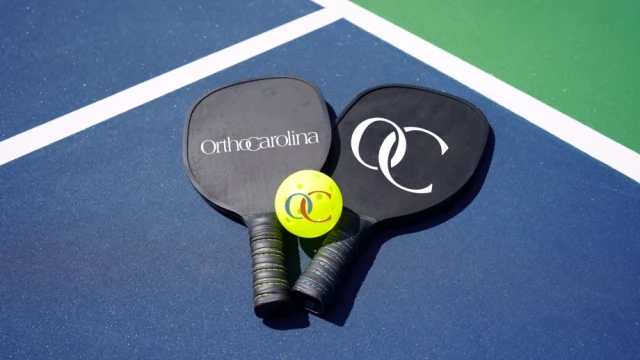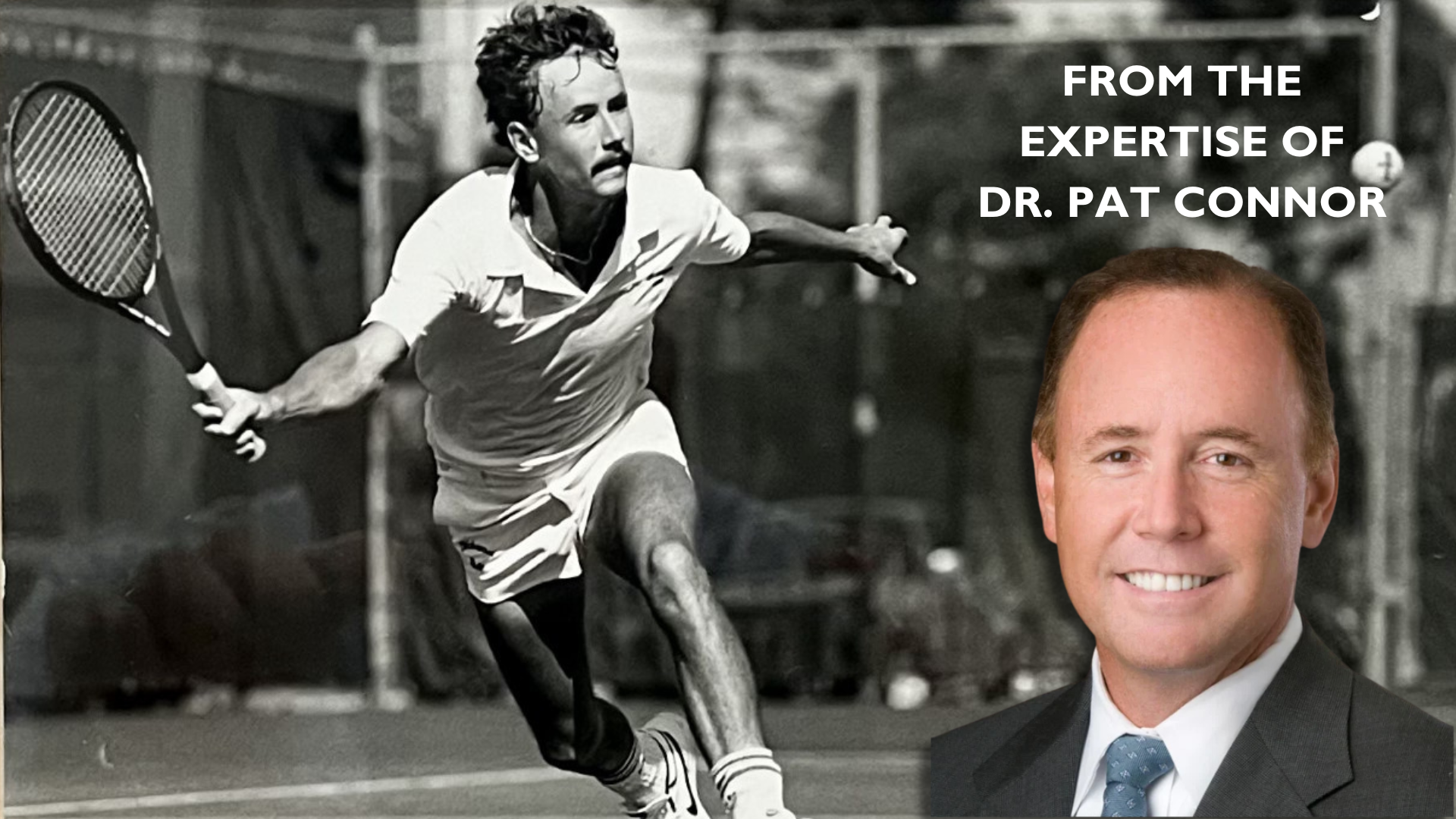
Understanding and Preventing Pickleball Injuries: Insights from an Orthopedic Surgeon
As the popularity of pickleball continues to rise, OrthoCarolina is witnessing a significant increase in pickleball-related injuries. The pickleball hype continues to grow as people enjoy playing with friends, getting outside, and keeping people active. The game's popularity attracts athletes of all types and ages, making injury prevention crucial. We are delighted to present valuable insights on pickleball-related injuries from Dr. Patrick Connor, an OrthoCarolina Sports Medicine orthopedic surgeon, fellowship trained in shoulder and elbow and sports medicine, and past Oklahoma State University Men's All-American Tennis player.
Watch WSOC as they interview Dr. Connor regarding pickleball injuries.

Similarities to Tennis and Potential Risks
While tennis is an intensive and force-driven sport, pickleball also utilizes many explosive techniques that can cause injury because of ignored mobility and over-pushing yourself. Many pickleball players are trying the sport after a hiatus from athletic endeavors, which increases the potential for injuries. The importance of warming-up is very important to prepare muscles that have not been used that day. OrthoCarolina is seeing multiple pickleball players every week for various injuries including knee pain, meniscus injuries, and shoulder pain.
Lower Extremity Soft Tissue Injuries
One of the most common categories of pickleball injuries involves soft tissues in the lower extremities. Calf strains, hamstring strains, quad strains, hip strains, and other muscle-tendon injuries can occur.
To reduce risk of injury: it's essential to warm up properly with stretching and gradually increase activity levels. After playing, remember to stretch and ice any sore areas to reduce inflammation. If soreness persists, take a break from playing until you've fully recovered.
Foot, Ankle, and Knee Injuries
Foot and ankle injuries in pickleball can be categorized into two main types: ankle injuries (sprains and fractures) and Achilles tendon injuries. Ankle injuries often occur when the ankle twists during quick movements or changes in direction. When it comes to knee injuries, meniscus tears are very commonly seen from pickleball. This can happen from the pivoting and twisting on the courts. While playing with a torn meniscus may not impact your ability to play, it will continue to tear and we suggest you see a specialist as soon as you can to prevent further disruption.
To reduce risk of injury: To prevent such injuries, ensure your shoes are securely tied and provide proper support. Additionally, staying within your limits and avoiding excessive force on the Achilles tendon can help prevent tendonitis and potential ruptures.
Low Back Injuries
Due to the nature of pickleball requiring players to get low to the ball, low back injuries are quite common. The twisting movements involved in pickleball can irritate the lower back, causing these injuries to flare up.
To reduce risk of injury: Similar to lower extremity soft tissue injuries, managing low back injuries involves incorporating stretching and flexibility exercises into your routine when you're not playing. This helps maintain good mobility and reduces the risk of strains and discomfort.
Shoulder and Elbow Injuries
Repetitive motions in pickleball, such as repetitive swinging and high-contact can lead to shoulder injuries, such as rotator cuff injuries, and elbow injuries, like tendinitis (medial or lateral epicondylitis).
To reduce risk of injury: Respecting any soreness and warming up properly before playing are crucial. Incorporating gentle rotator cuff strengthening exercises can also help prevent injuries. Additionally, using over-the-counter soft braces on the elbow can minimize the force on the tendons and provide added protection.
Managing Pickleball Injuries
If injuries occur while playing pickleball, it's important to seek appropriate evaluation, diagnosis, and management to ensure a speedy recovery and safe return to the court. OrthoCarolina proudly partners with the HURT! App, which provides fast, free, advice for sports-related injuries, or you can reach out to any OrthoCarolina orthopedist to schedule an appointment online. Many pickleball injuries can be effectively managed through conservative treatments provided by their therapists.
Understanding the potential risks and injuries associated with pickleball is essential for all players, regardless of their skill level or age. The importance of a cool down is just as significant as a warm-up, to relax and stretch the muscles used during play. By following the preventive measures outlined, you can significantly reduce the risk of injuries and enjoy this sport safely. Remember to warm up properly, stretch, and listen to your body. If injuries do occur, seek professional guidance for appropriate care. Stay safe, have fun, and keep enjoying the game of pickleball!
This information is provided as an educational service and is not intended to serve as medical advice. If you are seeking specific orthopedic advice or assistance, please consult with your OrthoCarolina physician or locate one in your area through OrthoCarolina’s website at www.OrthoCarolina.com.
Back






Leave a Comment